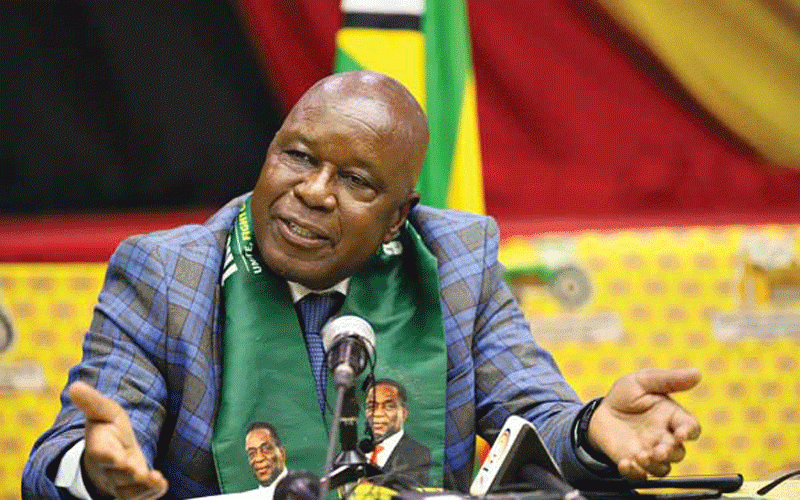
By Peter Makwanya
THE success or failure of any climate programme, at micro or macro level, lies in how issues of policy are articulated in order to bring the desired results in communities. Climate policy is the biggest driver of desired change in communities, through sign-posting and sufficient guidance. While everyone wants to witness positive outcomes in their communities, it depends on how policy issues are communicated in climate policy initiatives. For communicative power to be realised, it must not be discussed in isolation and viewed with wrong lenses. While climatic changes are what we see and interact with on daily basis, policy issues are designed to guide climate action strategies as communicated strategically and institutionally binding.
In order to bridge the implementation divide, it is important not to change meanings and norms in order to conform to self-interest and desires.
If the climate policy idea is to upscale reforestation and come up with carbon sinks to absorb greenhouse gases and reduce global warming, authorities’ reasoning should not be influenced by what lies beneath the earth’s surface like minerals or fossil fuels.
Vision is the framework that shapes and transforms climate goals, using relevant user-friendly and human-centred communication tools, significant enough to reconnect communities with their values, worldview, beliefs and practices as they relate to their local situations. If the vision is to be a 100% carbon emission-free country in the world and a habitation of choice, then all policy measures should translate to climate actions on the ground.
In dealing with climate policy issues, the communicative power is harnessed in order to situate people as the greatest resources needed to get things done, tapping into their minds and hearts, as sources and ingredients for a human capital base.
The interdisciplinary nature of climate change is always blurred by the absence of context-specific communication.
Communication becomes powerful when it is not used to divide the people’s attention and divert them from their local and global goals.
- Chamisa under fire over US$120K donation
- Mavhunga puts DeMbare into Chibuku quarterfinals
- Pension funds bet on Cabora Bassa oilfields
- Councils defy govt fire tender directive
Keep Reading
The goals of adaptation and mitigation cannot be separated from the people’s everyday transactions and livelihood aspirations and options.
If done appropriately, without being overweighed by the baggage of toxic human perceptions, communication becomes the master key that unlocks accelerated climate proof solutions, lifelong learning and skills.
These are instrumental in solving climate problems, attaining community resilience and rapid socio-economic transformation.
Communities can only build strong infrastructure and institutions if communication is designed to expose institutions with competing interests and duplication of roles and how they are driving the climate agenda into a climate paradox, marked by proved failures.
In this regard, climate policy messages should always be communicated in order to have positive impacts on people’s understanding, attitudes and actions in regards to overall climate change discourses.
Wrongly communicated and implemented climate policies, nurture and breed life-threatening disasters and inconsistencies, too much to expose planning failures and gaps.
It is the duty of communicative power to help uncover climate policy incompetence, blips, assumptions and doublespeak, especially from the authorities, whom everyone would be investing their faith in for positive climate solutions which we all envisage.
If climate policies cannot situate communities at the heart of climate actions then it is the duty of communicative power to actively filter the kind of climate messages that reach the public, penetrate the social fabric and resonate well with their livelihood aspirations and options.
Placing people at the heart of climate action in sustainable development issues is normally the missing critical key, to unlocking climate justice transitions to a climate resilient world.
It is also significant that citizens are not just mentioned in passing, in policy documents but their participation in public policy implementation should be substantially guaranteed.
Many nations and institutions have proven to be weaker on policy implementation and gaps due to indiscipline, dearth of conscience and double-speaking.
This includes the widening gaps between their actions and words, which are very difficult to mask.
People require policies with climate narratives that reconnect them to their natural world and abide by the stories they are supposed to live by.
Responsible authorities need to continue keeping people sustainably knowledgeable and having understanding of climate policy issues as a conscious cultivation of eco-behaviours and be part of the voices of the earth for sustainable living.
Communicative power should strengthen and upscale climate action policy narratives and make them easily implementable.
Peter Makwanya is a climate change communicator. He writes in his personal capacity.











